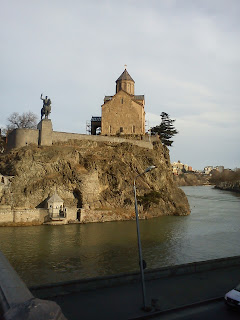Airbnb, travelers and tourists
More and more tourists would rather describe themselves as travelers. For ages the tourism industry would not include this strain that has evolved from the small group of pioneers to become a new reality.
Things are blurring: tourists are also travelers, and travelers do tourism.
Bing a traveler means to integrate in the local reality, to leave the “tourists compound” to be part of the picture of the location. It’s written nowhere that a tourism agent cannot offer this kind of experience, and taking into due account the demand, this is evolving too, through the way excursions are organized, to where tourists are taken to, and to what they are offered.
Disintermediation provided by internet is widening the options for travelers/tourist-travelers. Airbnb is in the forefront of this trend.
But, regardless the fact that Airbnb is already a consolidated reality, is it really something new in the history of how we travel?
Tourist accommodation has changed little by little. Houses and farms have opened in the last decades, first with Agroturismi and all the possible variants, then with private houses, flats, villas. All available on the net.
The phenomenon of housing in non-hotel facilities was and partially is still controversial and discussed. The question is not trivial either because it has developed in a very messy way, through Airbnb, or because it has aroused concern among hoteliers.
The receptive reality based on various types of private structures (from studios to renovated farms, in cities as well as in rural areas) is now consolidated, and designates a type of reception different from that of the hotels. It is private, domestic space open to a passing person. So are - or should be - farmhouses, bed & breakfasts, numerous guest houses, and the huge and widespread network of Airbnb.
It should be noted: they should be, since many of these spaces actually offer the same service of second houses for short or very short time tourist rental, which is also a form of reception, but not inspired to the principle of sharing and integration of the guest in a housing unit with the landlord, but simply by making profit of otherwise vacant premises.
This is also not new for holiday rentals; on the contrary, these are beds placed on the market that reduce the pressure towards a new cementation and additional hotel construction.
But it is different from what they were meant to be.
If you are looking for a true Airbnb experience you might be disappointed to discover that you won’t even meet your host, or that the person you meet for the check in and the check-out is actually just an employee tasked to welcome you and wish you goodbye.
Then there is the option of renting an airbnb which is really a space you share with a family unit, with whom you can interact, tell about himself and discover the destination you have chosen through the words and advice from residents.
And this really goes back to the history of how we travelled for millennia: a very ancient model of hospitality. Anyone who is familiar with the history of travel or has even read past travel stories knows that travelers rarely went to dedicated overnight accommodations. There were on the most trafficked tracks inns or caravansaray.
But mostly, for less famous routes, it was the doors of those who were on the way to open. Monasteries, huts, farms, houses and stables have always been the accommodation points for those who were passing by. The travel, pilgrim, wanderer, adventurer would arrive, negotiate an overnight stay, generally receive something to eat. Sometimes the guest would be welcomed at the table of the host, and here the story would begin. And they talk to each other, exchanged stories.
And here we are back to what it used to be, as if internet and the disintermediation have revived the way we used to travel, and the traveler in the tourist.

Commenti
Posta un commento